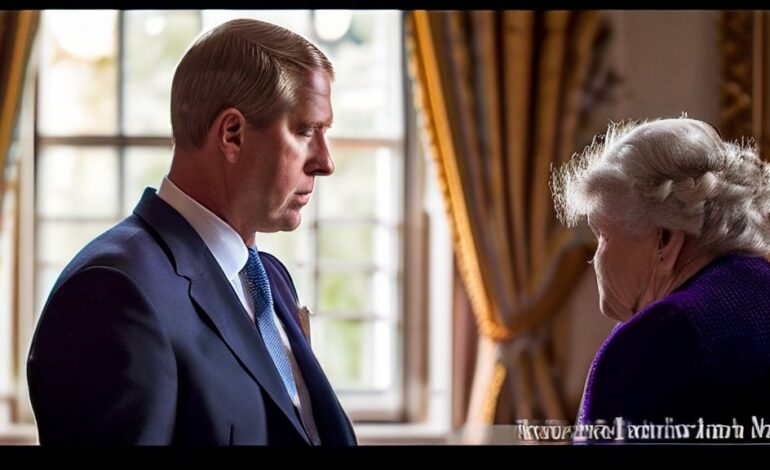William’s Bold Move: Royal Titles in the Crosshairs as Andrew’s Future Hangs in Balance

Zoe Bennett here — your go-to voice for sharp, fact-driven royal analysis. When it comes to the British monarchy, tradition often reigns supreme. But now, a seismic shift is brewing beneath the surface, and it’s not just about protocol. According to insider reports, Prince William is preparing to break centuries of royal precedent to confront his uncle, Prince Andrew, head-on. This isn’t mere speculation; it’s a calculated strategy emerging from the shadows of palace corridors, driven by a desire to rebuild the monarchy’s battered public image.
The future king, 43, is reportedly determined to ensure that Andrew faces full accountability for years of scandal that have eroded public trust. Unlike his father, King Charles, who has historically favored diplomacy and discretion, William is said to be far more uncompromising. “William is far more hard-nosed than Charles when it comes to protecting the monarchy’s reputation,” revealed a former courtier to Radar Online. “He’s fully aware of the harm Andrew has caused.” This shift in approach signals a new era — one where legacy may no longer shield misconduct.
Central to William’s plan? The potential revocation of Andrew’s royal titles. While the monarch traditionally holds the power to strip titles through Letters Patent, such action would require parliamentary backing if done via legislation. Insiders suggest William is exploring both avenues. Removing the title of Duke of York — or even the honorific HRH — could serve as a symbolic and legal reckoning. Though a Royal Warrant could theoretically accomplish this, sources indicate it’s unlikely to gain government approval, given its personal nature.
But the stakes go beyond titles. William is reportedly eager to evict Andrew and ex-wife Sarah Ferguson from the Royal Lodge, their home since 2004. Despite Andrew’s recent victory in retaining the property after a protracted legal battle, his status remains precarious. Author Andrew Lownie, in his biography Entitled: The Rise and Fall of the House of York, paints a picture of a man adrift — “living the life of a retired man” — emotionally and socially severed from the institution he once embodied.
Lownie also uncovered a deeper rift between William and Andrew, rooted in personal animosity. Allegedly, Andrew made “nasty remarks” about Princess Catherine, fueling resentment within the inner circle. These comments, believed to stem from jealousy over Kate’s rising influence following Queen Elizabeth II’s passing, are said to have permanently fractured their relationship. That breakdown, combined with Andrew’s associations — including Jeffrey Epstein, Virginia Giuffre’s lawsuit, and suspected links to Chinese spy Yang Tengbo — has left him politically and personally isolated.
What truly wounds Andrew, according to Lownie, is not the loss of wealth or privilege, but the erosion of identity. “What most annoys him is his lack of a royal status,” the author noted. “It’s not being able to put on his uniforms and strut around and being self-important.” That sense of diminished stature may be exactly what William intends to enforce — not out of vengeance, but as a necessary purge for institutional renewal.
As William prepares to ascend the throne, the question isn’t whether he’ll act — it’s how far he’ll go. With public scrutiny at an all-time high and the monarchy’s relevance hanging in the balance, this isn’t just a family feud. It’s a constitutional moment in the making.
And let’s be honest — if anyone can make the crown feel relevant again, it’s the prince who’s already proving he’s not afraid to burn the rulebook.
Sources: Celebrity Storm and Radar Online, The New York Post, People Magazine
Generated by AI




